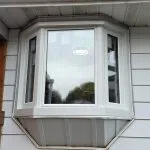
Lethbridge College grads named award finalists for turning tires into asphalt
LETHBRIDGE, AB – It used to be that tires were only meant for driving on the roads, but thanks to a group of recent Lethbridge College students, they are the roads themselves.
Amy Gregorchuk, Liudmyla Wagner, and Daniel Mitchell were finalists for the Association of Science and Engineering Technology Professionals of Alberta’s (ASET) Capstone Project of the Year Award.
They graduated from the college’s Civil Engineering Technology program in 2020.
Gregorchuk told LNN that they explored turning old rubber tires into asphalt.


